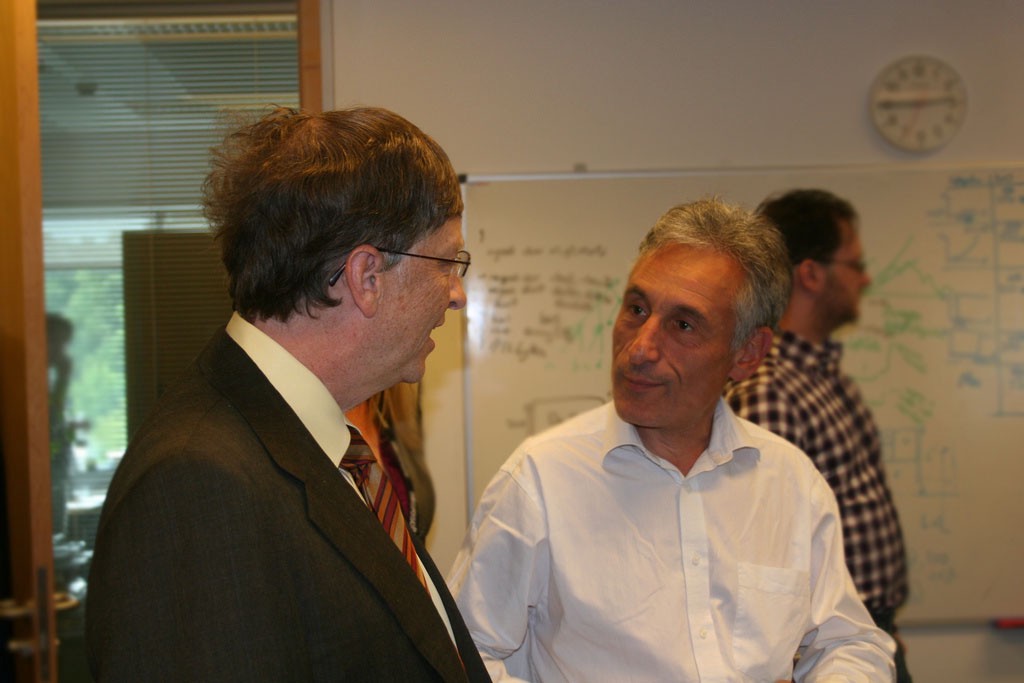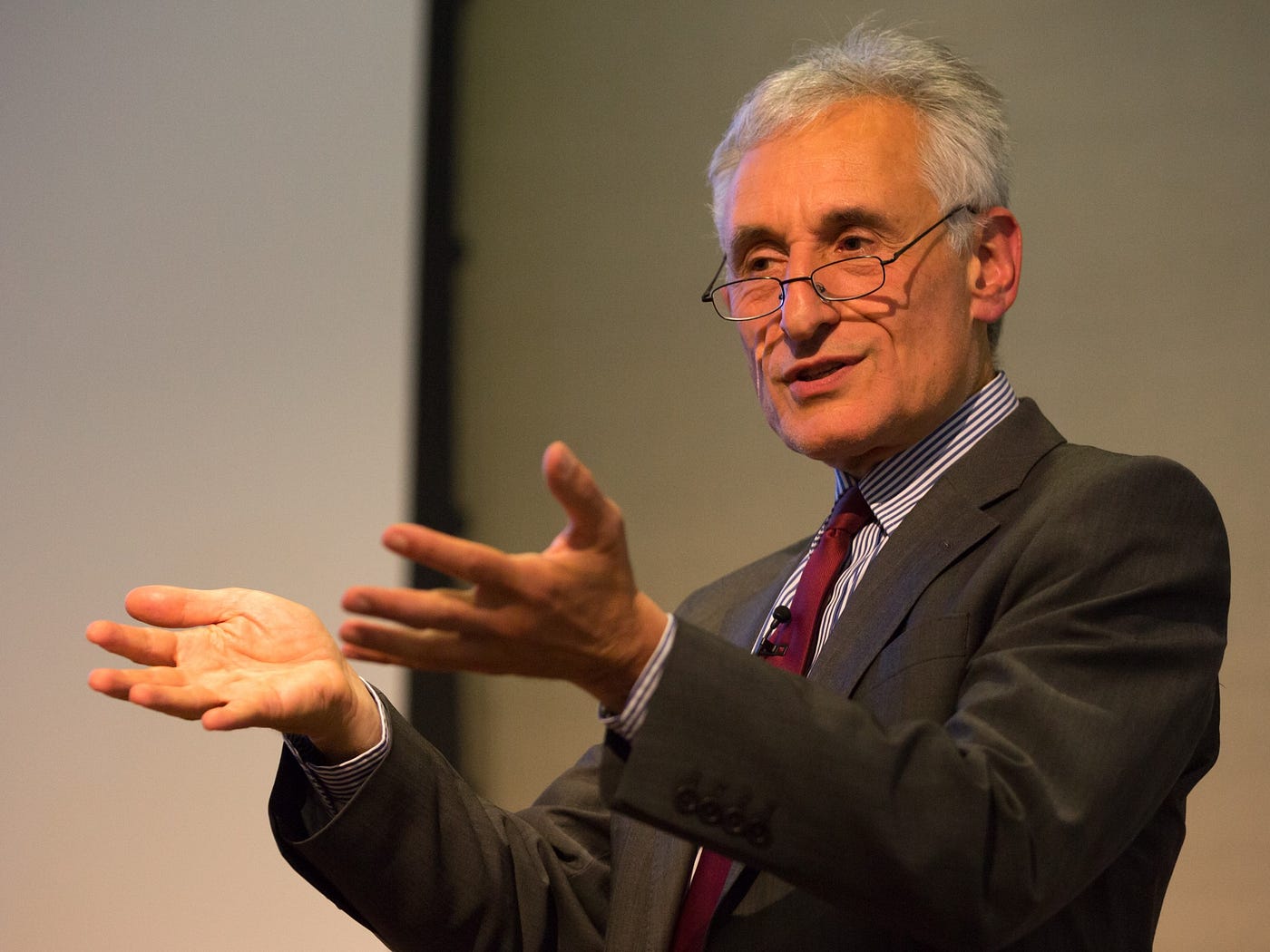‘In the next few years we will see how far portable intelligence can migrate from our pockets to our heads’
Professor Andrew Blake, Fellow of Clare Hall, has been working in Artificial Intelligence since 1978. Here he reveals some of his career highlights and latest projects

My PhD thesis from 1984 still lurks in the archives of the University of Edinburgh, in which I explored the possibility of building machines that could see.
Later, what had seemed like science fiction for a couple of decades began to look quite real. Around the turn of the millennium, I moved from Oxford University to Cambridge, to join Microsoft’s newly-established European lab, and led a team inventing 3D cameras with ever more powerful built-in intelligence. After a decade, I became Director and set about building the best environment I could for research in the frontiers of computing. We moved to purpose-built premises in Cambridge’s new tech quarter CB1, and focused particularly on cloud computing, and on Machine Learning, which became the dominant technology underpinning seeing machines and AI more broadly.
It is an incredible feeling to have been able to add to technology that lands in over 1 billion pockets and handbags every year
After some time out, setting up the Turing Institute for data science in London, Samsung asked me three years ago to set up an AI lab, from scratch, in Cambridge.
They needed more AI to stay in the lead with their comprehensive range of consumer appliances, of which smartphones and TVs are probably the ones people know best. They looked to Cambridge in particular, of the likely European sites, because Cambridge has an extraordinary reputation for science-driven innovation. The very best research scientists and engineers want to come and work here.

Samsung’s Cambridge AI Centre is one of a network of 5 new AI centres around the world, and between us we have contributed to photography and video capabilities in the new Galaxy S21 phones.
It takes a while to get in the groove of innovation, and we are very proud that this is the year our efforts have started to come to fruition. It is an incredible feeling to have been able to add to technology that lands in over 1 billion pockets and handbags every year. In academia we often focus on crediting individuals with particular advances, and that happens in industrial labs too. For the most part though, the major technological advances come from collaboration in extensive networks of talented scientists and engineers across the company and around the globe.
Surely we will never entirely go back to the old way of working
The industry is putting tremendous amounts of energy into ‘Augmented Reality’.
In the next few years I speculate that we will see how far portable intelligence can migrate from our pockets to our heads, in the form of talking spectacles that see the world, and overlay it with critical information about places, people and purchases.
The pandemic has revived and intensified a long-term interest I have had in working together over video.
Once we are done with the pandemic, the world must get back to the extinction rebellion and mitigations for climate change. Previously people often dismissed video conferencing, perhaps lazily, as not the same as meeting face-to-face. But now we have all had to put the effort into learning how to do it. And for many people it is transformative, not only in allowing us to continue working during the pandemic, but for the improved quality of life, dispensing with the commute, spending that time with our families. Surely we will never entirely go back to the old way of working.
I have been intensely interested in using AI to relieve what we now call ‘Zoom Fatigue’
Video conferencing will be critical in reducing the world’s carbon footprint.
Academics must take a lead here. I have been intensely interested in using AI to relieve what we now call ‘Zoom Fatigue’. We worked on it at Microsoft in the early 2000s, and now I am involved again, both in Samsung and with university scientists.

I am in the unusual position of being a Fellow of Clare Hall, but not on the University payroll.
I am so grateful to the College, and to Gillian Beer who was President at the time, for being broad-minded and electing me in that capacity. It is a notably inclusive and welcoming college, and I have really appreciated that. Truthfully, my research has been all-consuming, and I didn’t always get deeply into College life, though I did a stint as tutor, and with our musical programme. Nowadays I have a little more capacity. I am particularly excited by the vision for the College that Professor Alan Short brings as incoming President, so I am very much looking forward to being more involved over the next few years.